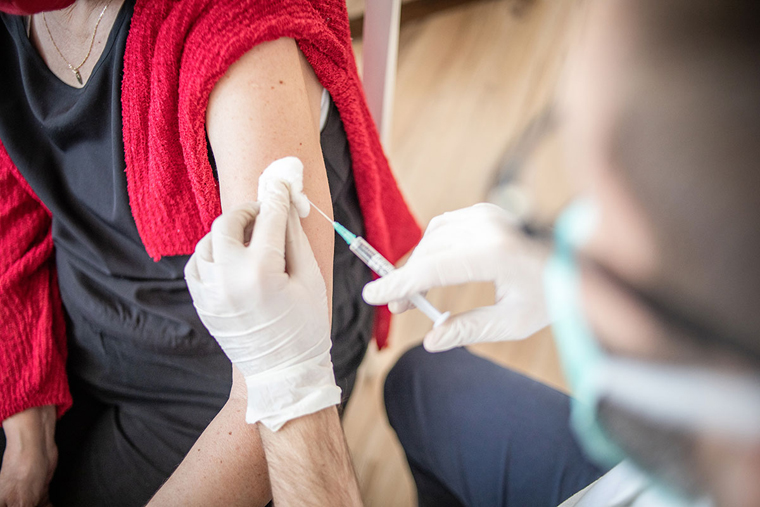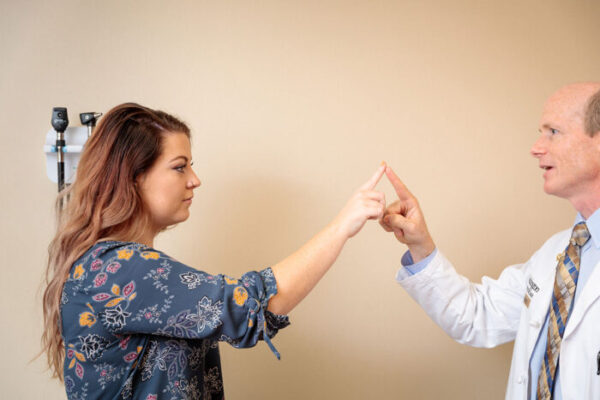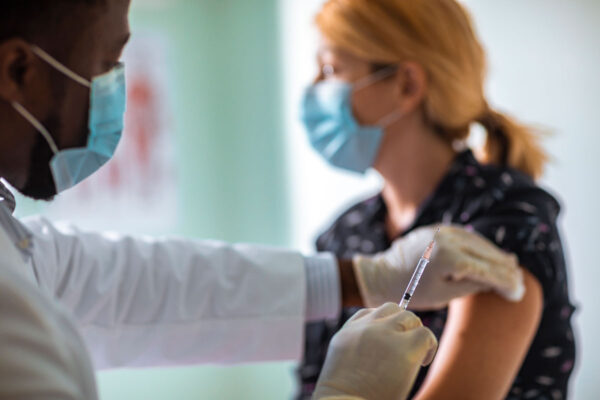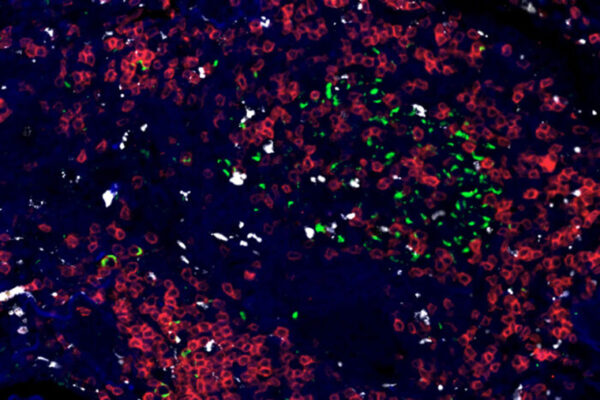Washington University School of Medicine in St. Louis is participating in a nationwide phase 2 clinical trial to evaluate whether an investigational omicron-specific booster of the Moderna COVID-19 vaccine is safe and capable of eliciting a strong immune response.
The highly transmissible omicron variant emerged in November and rapidly spread around the world, causing a surge of cases and hospitalizations that have strained health-care systems. All of the COVID-19 vaccines and boosters currently in use are based on the original variant of SARS-CoV-2, the virus that causes COVID-19, but the omicron variant has dozens of mutations, and researchers and other experts are weighing whether boosters designed to target omicron may be necessary in the future.
Rachel Presti, MD, PhD, an associate professor of medicine and medical director of Washington University’s Infectious Diseases Clinical Research Unit, is the Washington University site leader for the clinical trial. Participants ages 18 and up who already have received the two-dose primary series of the Moderna COVID-19 vaccine, or the two-dose primary series of the Moderna COVID-19 vaccine and the currently authorized Moderna COVID-19 vaccine booster will be given the investigational omicron booster. Their immune responses will be monitored through blood samples.
“We are evaluating the investigational booster now so that we can learn about the safety profile and how the body’s immune system responds if an omicron-specific booster is needed in the future,” Presti said. “We are already working with Moderna to evaluate its beta- and delta-specific boosters in clinical trials, so this is an extension of that research to the most recent variant of concern.”
Washington University School of Medicine’s 1,700 faculty physicians also are the medical staff of Barnes-Jewish and St. Louis Children’s hospitals. The School of Medicine is a leader in medical research, teaching and patient care, and currently is No. 4 in research funding from the National Institutes of Health (NIH). Through its affiliations with Barnes-Jewish and St. Louis Children’s hospitals, the School of Medicine is linked to BJC HealthCare.




Comments and respectful dialogue are encouraged, but content will be moderated. Please, no personal attacks, obscenity or profanity, selling of commercial products, or endorsements of political candidates or positions. We reserve the right to remove any inappropriate comments. We also cannot address individual medical concerns or provide medical advice in this forum.